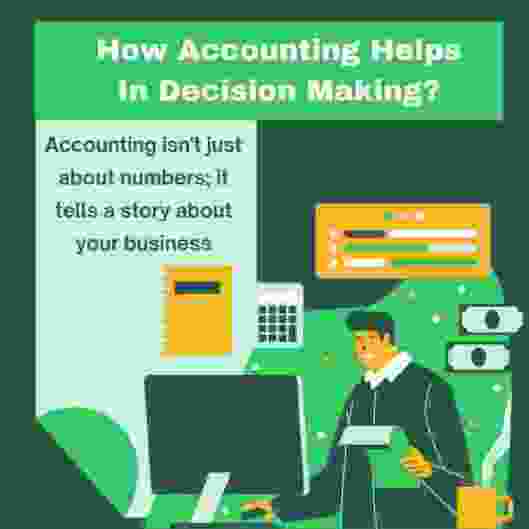

Accounting data is especially important when you need to make big decisions as it’ll help you choose the option that’ll guide your business forward.
Mainly There are five ways accounting helps you make decisions in your business.
- Business loans
- Operational analysis
- Investments
- Budgeting
- Marketing
Let’s dive deeper into each point and illustrate them with real-life experiences:
1. Business Loans:
Experience: Imagine you’re a bakery owner eyeing new equipment to expand production. You approach a bank for a loan. The banker analyzes your financial statements (prepared by your accountant) to assess your borrowing capacity. They look at your profitability, debt-to-equity ratio, and cash flow to determine if you can comfortably repay the loan. Good accounting practices and transparent financial records build trust with lenders, securing better loan terms and interest rates.
2. Operational Analysis:
Experience: As a clothing store owner, you notice a dip in sales for a specific clothing line. Your accountant can analyze inventory turnover rates, sales margins, and customer purchase data to identify the underperforming line. This helps you make informed decisions like discounting the line, offering promotions, or even discontinuing it to optimize resource allocation and improve overall profitability.
3. Investments:
Experience: You’re a restaurant owner considering opening a new branch. Your accountant can assess the feasibility by analyzing market trends, competitor analysis, and projected financial statements. They can also help you compare different investment options like buying an existing space or building from scratch, considering factors like depreciation, maintenance costs, and potential return on investment.
4. Budgeting:
Experience: As a manufacturing company, you need to budget for raw materials, labor costs, and production expenses. Your accountant can help you create a realistic and flexible budget based on historical data, industry trends, and your business goals. This allows you to allocate resources efficiently, control spending, and anticipate potential financial challenges before they arise.
5. Marketing:
Experience: You run an online store and want to optimize your marketing campaign. Your accountant can track the cost-effectiveness of your marketing channels by analyzing the return on investment (ROI) for each campaign. This helps you allocate marketing budgets effectively, focus on high-performing channels, and maximize the impact of your marketing efforts.
Remember, accounting isn’t just about numbers; it’s about using those numbers to tell a story about your business. By understanding your financial health and interpreting the data your accountant provides, you can make informed decisions that lead to real-life success.